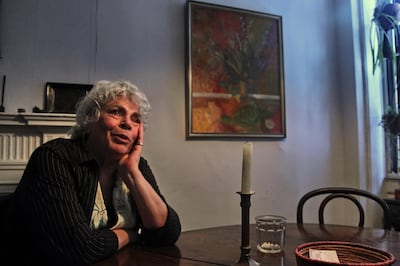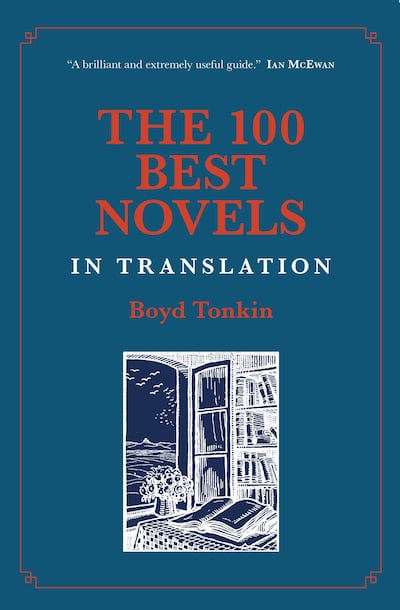Over the past 400 years, the novel has become the pre-eminent prose storytelling form around the world: a torch that passes from country to country, language to language, lighting new story fires everywhere and finding, or making, new audiences. It follows, then, that no one counts as a serious reader of novels if they don't read novels in translation.
Many of our great novel-reading experiences are actually the result of the work of two artists, not one. How would we know Chekhov in English without Constance Garnett, Proust without C K Scott-Moncrieff, Garcia Marquez without Gregory Rabassa? How would the Arab novel have travelled to Anglophone shores without the pioneering work of Denys Johnson-Davies?
As the British literary critic Boyd Tonkin argues in his exciting new book The 100 Best Novels in Translation, translators are the great travel agents and bridge-builders of the novel form, allowing books written in one language to be read – with pleasure approximating the experience of the original – by readers in many others.
Since no one language or country has a monopoly on novelistic excellence, every reader knows most of their favourite novelists in words fashioned by their translators.
In fact, without translators to provide them with new material to feed on, even novelists would be stuck with models solely from their own linguistic tradition. Unsung and often even unnamed, translators are the silent heroes of literature.
And although the Anglophone world is extremely rich in translators, a sad consequence of the spread of English and of monoglot culture has been the marginalisation of works in translation.
But here comes Tonkin to remedy that. For many years the literary editor of the British newspaper The Independent, Tonkin has always been a committed proponent, in a literary culture all too often unconsciously insular, of the pleasure and power of the cosmopolitan tradition of the novel and the translators that make it come alive.
Uniquely, the Independent Foreign Fiction Prize, an annual prize he helped to found, awarded its prize money equally to author and translator.
Now he presses his decades of reading world literature into a literary panorama of great geographical sweep and intellectual charge, making a list of his favourite novels in translation across 400 years, from Cervantes to Balzac, Mario Vargas Llosa to Orhan Pamuk (one of the rules of the game is that no author is allowed more than one book). Here is a book that makes 100 other books come alive.
In fact more than 100, as Tonkin often points to more than one translation of a novel, pointing to the relative merits of each in a way that might disconcert those readers who want him to recommend “the best translation”.
Certainly, many versions exist of the first book on the list, Cervantes's Don Quixote (1605), "the acknowledged pattern-book or seed-bank which germinates every branch of western fiction". But if Tonkin is to be taken at his word, Edith Grossman's 2003 translation is the most readable of them all and the most faithful to Cervantes's style.

For all those of us who loved novels in our youth but have sacrificed their pleasures to the demands of family, work and social media, here is a book to make you fall in love all over again. In almost every essay, Tonkin says something illuminating and memorable.
In Marcel Proust's great novel sequence In Search of Lost Time, "Not quite all human life is here. All human feeling is." In his essay on Naguib Mahfouz's Cairo Trilogy, he gets to the heart of what has made the novel such a good traveller when he says that the books "enact a dialogue between Egyptian ways of being and European ways of knowing".
Each essay has many wonderful quotations from the books themselves, allowing the reader direct access to the novelist's style and sensibility. How I wish I'd had this book when I was a literature student 15 years ago, to save me on so much work.
Tonkin is at his most revelatory in his selections from 17th and 18th century novels, ands then again in the final decades of the 20th century. I only found him somewhat limited – and more than a touch Eurocentric – in the middle. The core of his list is made up of novels from between 1920 and 1960.
Here there are too many predictable choices – and too many men. I'm not convinced that Sartre, Camus and Mann are as essential as Tonkin thinks. And there are a host of great Italian writers (Buzzati, Pavese, Bassani, Svevo) whom one might also consider not indispensable, especially when one sees there are so few novels from the Indian subcontinent (two), Africa or the Arab world.
Tonkin is too hung up, one might say, on European ways of knowing European ways of being. A cosmopolitan literary critic brought up in Delhi, Rio or Cairo would probably add many exciting novelists to such a list (Gopinath Mohanty, Jorge Amado, Nawal El Saadawi, Malika Mokkedem) while still covering the great European tradition.
But this is a small cavil at a large and generous project. As Tonkin shows, we are living in a great age of translation, with many of the great classics of old also being presented in exciting new versions. (“Translations, notoriously, age faster than their originals.”)
And we need people like Tonkin to bring the big picture into focus – and to allow us to refocus it to make big pictures of our own. Don’t miss this encounter with one of the greatest readers in the history of the novel.
______________________
Read more:
Amman's first English-language lending library has more than 27,000 books
The world's biggest book sale is coming to Dubai
Imperial Jerash: where history seeps from the ancient stones
______________________


